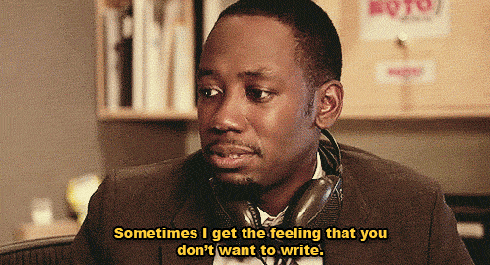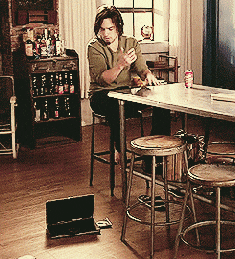Jess had some interesting questions about world-building the other day and I thought I’d address them here for everyone. I’m by no means an expert, I’m new to this too. I wanted a rich world for Cartographer’s Dream to take place in, something that I could write sequels in, something that I could write encyclopedias of. I’d like to think I’m well on the way to that. To get where I am, I followed a few steps: 1. Outline, 2. Questions 3. Cause and Effect, and the little bonus I like to throw in called ‘neat-o factor.’
Before we outline the steps, there is one recommendation I can make: keep yourself grounded, know your tone. It will depend on your genre and story. Cyberpunk will require more dark ideas than shiny ones, comedy requires silly ideas (like an orange salesman named Bob.) It’s important to understand your tone when making your world. A Shakespearean tragedy in a world where the sky is made of sparkles and the ground is made of toothpaste can work though it will be very different from something more traditional and potentially much harder to have it not become a piece of comedy.
1. Outline: This part is pretty self-explanatory for anyone who’s written before. For anyone who’s new to the hobby, there will be posts about this later. The first step is to plan your story. It should be something loose, something that you can play around with. It’s from the outline that you’ll find problems, solutions and shortcuts that can be used by or shut off from characters by means of their environment. Take this example:
Bob is an orange salesman. He is a very unhappy man because oranges are not selling so he eats all of his oranges and wants to buy cars to sell. He buys a bunch of cars, sells them all and retires.
The example is simple, a little silly but simple. Based on the character in your head, maybe Bob would be a really good car salesman but you decide that would be too easy for good ol’ Bob, maybe you want your story to be a 5000 page mammoth and that’s not a good enough plot to fill it. You need to block the easy path for Bob. You need to take cars out of the equation. There are a few ways to do this, you can root it in our world – cars are too expensive to buy for a failing orange salesman – or you can root it in your own world. This comes to the second point.
2. Questions and Answers: This is the part that will yield the most design in your world. We’re confronted by the problem. Bob wants to sell cars but because Bob would have too easy of a life doing that, we need to find a way to keep him from doing that. As I said above, give it a little bit of creativity at first. Your answer could be as simple as ‘he broke his leg and had to pay for surgery,’ but let’s not be that mean to poor Bob. Think outside of the box with it. Why can’t Bob buy cars to sell? Well, Cars are illegal because they let you outside of the cities.
From there it’s a good idea to continue onward in the line of questions. Why aren’t people allowed outside of the cities? Because they land in between cities is flooded with metal-eating worms, of course. How did the worms get there? Well they were put there by Worm-co, the evil conglomerate. You can follow the question until you feel it’s ended up with enough useful content. That changes your story quite a bit, doesn’t it?
Bob is an orange salesman. He is a very unhappy man because oranges are not selling so he eats all of his oranges and wants to buy cars to sell. He wants to buy a bunch of cars but he can’t because they’re illegal because the worms metal-eating worm-co worms will eat the cars and get big enough to eat the cities.
3. Cause and Effect: This can be considered an extension of step two but I’ll keep it separate because more numbers = better. This step requires more thought than the second. It’s probably where a lot of your time will be spent thinking. Now that we know Bob’s city is surrounded by worm-co worms, what effects does that have? How have all the people been affected? If I lived in a world where nobody eats oranges, maybe it’s because everyone is allergic to them from genetic testing. I know if I lived in a city surrounded by giant metal-eating worms I would be terrified of worms. If I lived in a world where cars were illegal, maybe people would get around by helicopter. We now have a world. It’s small and it’s silly but it’s ours.
Bob is a vermiphobic orange salesman. He is a very unhappy man because oranges are not selling since they make people swell up so he eats all of his oranges and wants to buy cars to sell. He wants to buy a bunch of cars but he can’t because they’re illegal because the worms metal-eating worm-co worms will eat the cars and get big enough to eat the cities. Instead he is forced to buy helicopters, something he knows nothing about, because that’s what people move around in.
Bonus. The Neat-o factor: This step can come along at any time, in any order. This ‘step’ is just like it sounds. It’s an idea in your head that you want to fit into your world or your story. Because you decided that maybe your story needs to have aliens. It’s something that you feel your story needs. If you’re still on step 1 then you’re in luck, it’ll be easy for you to insert it. If you’re already done creating your world then you’ve got your work cut out for you.
You’re given two options. You can change your world, something that could take a lot of work depending on how much of your world is planned, or you can try to find its space in the puzzle, something that might not leave your aliens in as glorious a spot as you would have liked. If you decide on the former, it’s a good idea to take your time and make sure that they work where they are. If you decide on the latter than you have some questions to ask yourself. Follow each step for that idea, try to link it to other ideas if you can. Connectivity is key. 1. “There are aliens.” 2. “There are aliens who are mistreated because they started worm-co and made it impossible for orange salesmen to retire early.” 3. “There are mistreated aliens because they make life miserable for orange salesmen. They are mistreated because they made cars illegal by starting worm-co and thereby releasing metal-eating worms.”
To record our histories:
It is a good idea to develop a system to store your ideas. There are many ways to do this that will be unique for every writer. For those who like to write on paper, I can’t help you besides telling you to find a way to keep it organized. This is something that can work for really organized people or small worlds.
For anything larger, a good resource is Wikia.com. If you’ve ever read a wikipedia/wiki article, you can see how easy it is to connect ideas. The form is designed to be accessed by anyone making it an effective means of recording connecting ideas for your average writer. Wikia.com provides wikis to users for free, often being used for media franchises with worlds of their own. It will be available for anyone online to see, but only those you allow to edit. If you don’t want other users to see it, I suggest creating it with something other than the title of your work/series.
I have used one to create the world behind Cartographer’s Dream that is nothing more than a string of random characters bookmarked on my browser and written down in my word document. For the purposes of demonstration, I’ve made a much smaller one that can be viewed here: http://cartographers-dream.wikia.com/wiki/Cartographer
I hope this has helped some people (Jess) understand the steps I took to create the worlds that I write in. If you feel you don’t understand the concepts, please try it with a story of your own, silly or otherwise. Start small and let it grow with you.
-Josh


